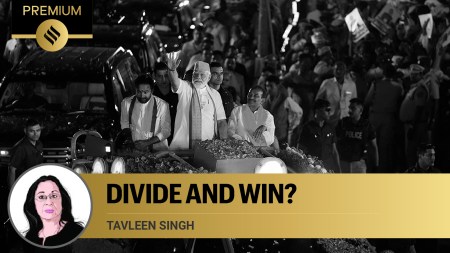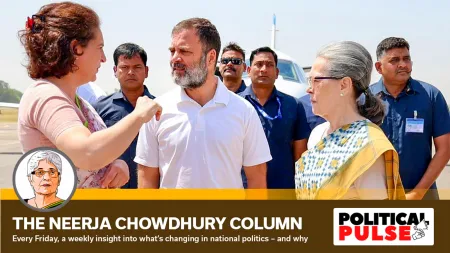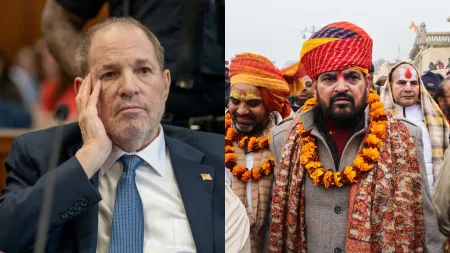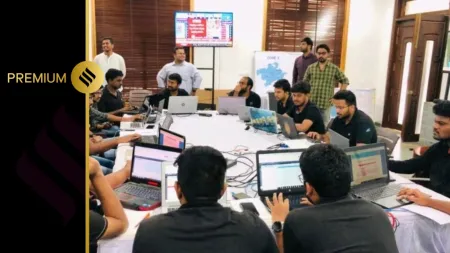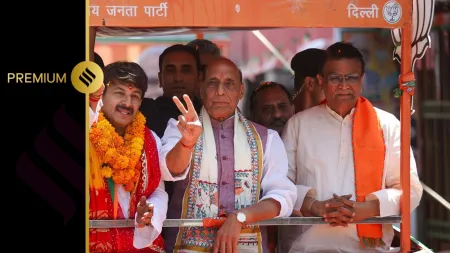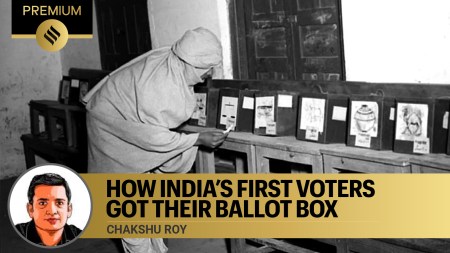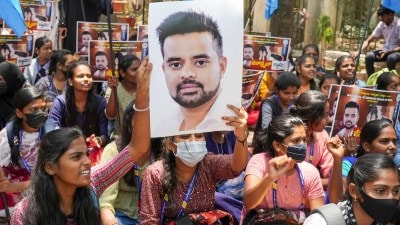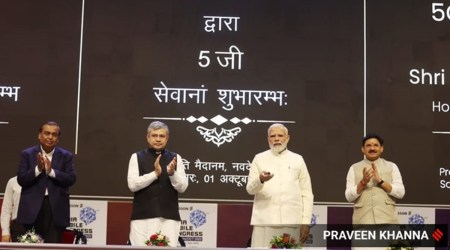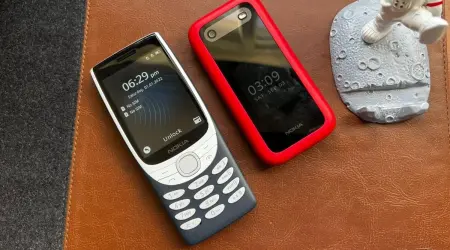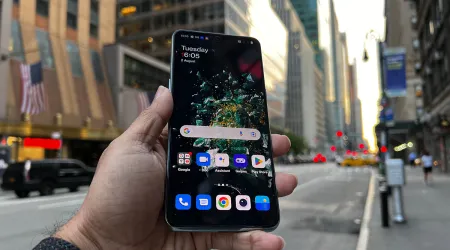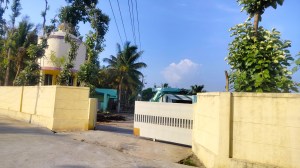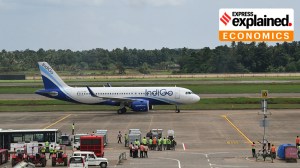- India
- International
If you have a vaccination certificate, then we are connected: Viraj Tyagi, CEO, eGov Foundation
An alumnus of IIT BHU and IIM-Bangalore, Viraj Tyagi has worked with the American Express in the UK and ran a big data startup NettPositive, before joining eGov Foundation.
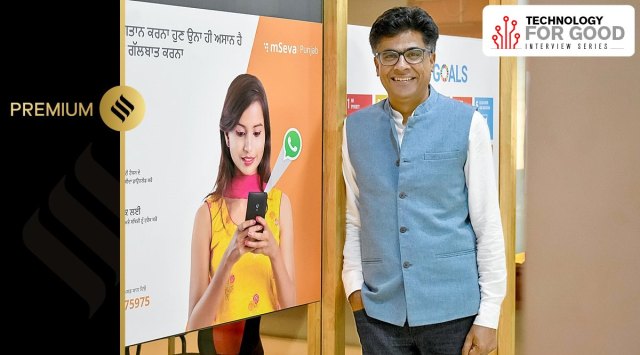 Viraj Tyagi is busy building digital public infrastructure for transforming governance and citizen services primarily in India, but now increasingly with a global footprint. (Express photo by Jithendra M)
Viraj Tyagi is busy building digital public infrastructure for transforming governance and citizen services primarily in India, but now increasingly with a global footprint. (Express photo by Jithendra M)
If you have downloaded your Covid-19 vaccination certificate in India, then unknowingly you have been impacted by the eGov Foundation. If you have paid property tax or water charges in your city, then too you have been impacted by the eGov foundation.
eGov Foundation, a Bengaluru-based non-profit, has built the Digital Infrastructure for Governance, Impact & Transformation (DIGIT), an open-source platform that works across urban governance, healthcare, sanitation and public finance/ tax collection domains. Funded by Nandan Nilekani, Bill and Melinda Gates Foundation, Omidyar Network and Tata Trusts, the foundation is trying to build large digital public infrastructure across the country.
Indianexpress.com caught up with Viraj Tyagi, CEO, eGov Foundation, and a man who emits infectious energy and enthusiasm. He is busy building digital public infrastructure for transforming governance and citizen services primarily in India, but now increasingly with a global footprint. An alumnus of IIT BHU and IIM-Bangalore, Tyagi has worked with the American Express in the UK and ran a big data startup NettPositive, before joining eGov Foundation.
Venkatesh Kannaiah: How many cities and municipalities use your platform? Do they pick and choose the modules?
Viraj Tyagi: The choice is with the states and the cities that use our DIGIT platform. We provide it free of cost, as we are a non-profit. There are around 2,200 cities and municipalities and towns which use our platform for more than 50 services. It is used for increasing the efficiency of collection of property taxes, citizen grievance redressal and billing for water. It is modular, and it is for the states and cities to use whichever module they are comfortable with and which they think they can implement efficiently. Some cities even use our platform for citizens to book water tankers for supply to homes. We have a platform called m-gramseva, built on DIGIT which is used by states for implementation at the village level. There are around 17,000 villages which are now on the platform, and different states use it differently.
Venkatesh Kannaiah: What are the challenges that cities face in implementing your platforms, retiring legacy practices and platforms, and how do they overcome them?
Viraj Tyagi: There is always the issue of legacy platforms and practices. Open platforms like DIGIT provide interoperability and it helps in migrating data seamlessly. However, there is no single solution for all states; some states have done data migrations while others have re-engineered business processes to overcome legacy issues.

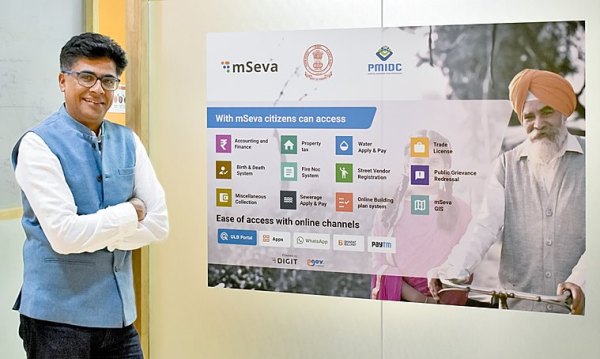 “We are working in Odisha in an innovative way with various local partners who use our DIGIT sanitation platform to improve equity and access and also improve service delivery with an eye on co-creation,” says Viraj Tyagi. (Express photo by Jithendra M)
“We are working in Odisha in an innovative way with various local partners who use our DIGIT sanitation platform to improve equity and access and also improve service delivery with an eye on co-creation,” says Viraj Tyagi. (Express photo by Jithendra M)
Venkatesh Kannaiah: Do you do any citizen surveys on increase in efficiency or usage levels of your platforms? Citizens do not seem to be happy with the way their cities function.
Viraj Tyagi: We conduct a survey every year through 60 Decibles, an independent agency. The recent survey in Andhra Pradesh indicates that the time to deliver services has improved dramatically. Services which took 20 days were being delivered in five days now and 80 per cent citizens reported improvement in responsiveness of the local government. In addition, municipal employees report saving 12 hours a week due to better tools and data now. Property tax collections have increased more than four-fold. Billing for water-related services increased five times in the last seven years. We have also implemented a concept of unified billing for properties, which helps raise tax revenues for cities and municipalities. For example, our DIGIT solution for cities has a dashboard for city managers and planners to monitor tax collection on a real-time basis.
Venkatesh Kannaiah: How has your strategy and operating model changed over the past few years?
Viraj Tyagi: From 2021, our foundation is working with the National Institute of Urban Affairs to implement the Urban Platform for Delivery of Online Services (UPYOG), which will enable the delivery of e-governance services across Indian cities. This platform is powered by DIGIT and eGov is the technical partner for this programme. Nowadays, we don’t implement our solutions. We work with partners in various states to implement these solutions. We also try to build an ecosystem around our services, for example, there are around 10 startups which are working to enhance the reach of our products or are working on innovations around our products.
Venkatesh Kannaiah: How many cities have begun using your sanitation platform of DIGIT? What are its main features?
Viraj Tyagi: We are working in Odisha in an innovative way with various local partners who use our DIGIT sanitation platform to improve equity and access and also improve service delivery with an eye on co-creation. DIGIT Sanitation is live in 70 cities and more than 800 villages.
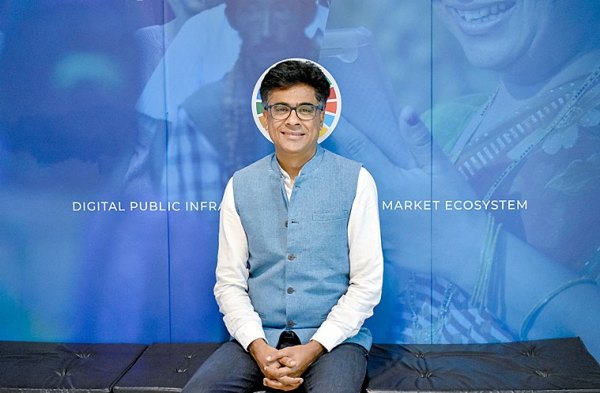 Funded by Nandan Nilekani, Bill and Melinda Gates Foundation, Omidyar Network and Tata Trusts, the eGov Foundation is trying to build large digital public infrastructure across the country. (Express photo by Jithendra M)
Funded by Nandan Nilekani, Bill and Melinda Gates Foundation, Omidyar Network and Tata Trusts, the eGov Foundation is trying to build large digital public infrastructure across the country. (Express photo by Jithendra M)
Venkatesh Kannaiah: How is your DIGIT m-Gramseva working? What has been the impact?
Viraj Tyagi: m-Gramseva has all the features of the DIGIT platform but with a focus on villages. We rolled it out in Punjab in 2021, and it is being used in around 17,000 villages across the country.
Venkatesh Kannaiah: The Digital Infrastructure for Verifiable Open Credentialing (DIVOC) is the engine behind the vaccination certificates. How is eGov Foundation involved?
[The Covid vaccination certification process is part of DIVOC which was offered by the eGov Foundation as an open-source platform to issue and distribute vaccination and test result certificates.]
Viraj Tyagi: All the software components within DIVOC are built as open-source and made available free of charge to anyone around the world. This project is maintained by eGov Foundation, India. Certificates are digital, machine-readable, digitally signed, verifiable, and also printable with a secure QR code. This makes it easy for people to carry/store it electronically or physically. Around two billion Covid-19 vaccination certificates have been issued across five countries — India, Indonesia, Jamaica, The Philippines and Sri Lanka. There are other countries which are getting interested in this platform.
The format and the certification is recognised by more than 95 countries. It is also compliant with the WHO and other international standards. eGov Foundation is proud to be part of this initiative.
Venkatesh Kannaiah: How does the Digital Public Goods Alliance work and how does it benefit the eGov Foundation?
Viraj Tyagi: The Digital Public Goods Alliance is a global forum for exchange of ideas in the sphere of public goods. It is multilateral in its reach and also has communities of developers and managers who work on these issues. We give our expertise of building digital public goods to the global community.
Venkatesh Kannaiah: What has been the response internationally for eGov Foundation solutions?
Viraj Tyagi: Recently, eGov Foundation and the United Nations Development Programme (UNDP) have signed an MoU to tackle the problem of infectious medical waste management in Indonesia. We are taking DIGIT to Indonesia. We have also signed an MoU with a Nigerian professional organisation to take DIGIT to Nigeria to improve e-governance, increase revenue generation and enhance government performance in Nigeria. This is apart from the huge success we have had with DIVOC in Indonesia, Jamaica, The Philippines and Sri Lanka.
More Tech
May 06: Latest News
- 01
- 02
- 03
- 04
- 05


